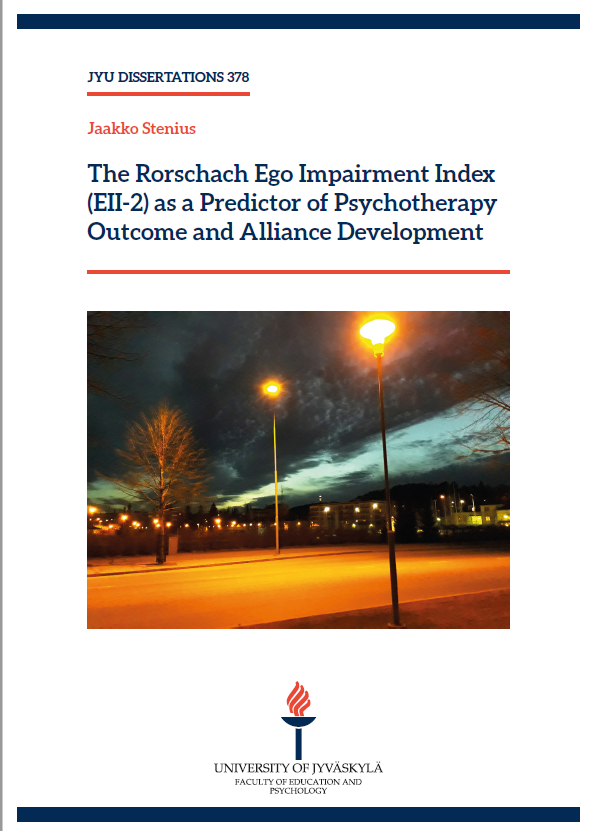
The aim of the research was to evaluate the predictive ability of the Rorschach-based Ego Impairment Index (EII-2) on psychotherapy outcome and alliance development in patients suffering from depressive or anxiety disorders, using data from the Helsinki Psychotherapy Study.
As various patient characteristics are among recognized predictors of psychotherapy outcome, it is important to understand how different patient qualities contribute to outcomes of therapies of different types and lengths. As a performance-based method the Rorschach provides a different, potentially complementary approach to the interviews traditionally used when evaluating patient qualities.
Patients (n = 326) who participated in the research were randomly assigned to two short-term therapies – solution-focused therapy (SFT, n = 97) and short-term psychodynamic psychotherapy (SPP, n = 101) – and one long-term (psychodynamic) psychotherapy (LPP, n = 128).
In a cross-sectional Study I, involving the whole study group, weak associations were found between the patients’ EII-2 (and subcomponent) scores and both interview- and introspection-based assessments. In a Study II, the predictive ability of three divergent assessment measures of alliance development over the course of LPP was examined. The results indicated that higher performance-based intelligence scores predicted favorable development of both patient- and therapist-rated alliance. Less use of immature defenses predicted improved patient-rated alliance during therapy, as did higher ego impairment, when effects of predictors was evaluated one at a time.
In a Study III, the predictive validity of the EII-2 for the outcome of the two short-term psychotherapies (SFT and SPP) and long-term psychotherapy (LPP) was assessed. Patients with lower EII-2 values indicating lower ego impairment were found to gain benefit more rapidly from both short-term therapies than from long-term psychodynamic psychotherapy. The findings suggest that Rorschach-based evaluation of ego functioning may provide clinically useful information for selection of treatment length. However, as these were the first investigations of the EII-2’s predictive ability for psychotherapy outcome and alliance development more research is needed to confirm and extend the findings.

